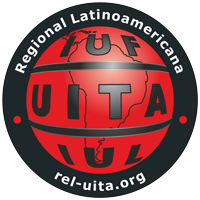Universal justice against Burmese dictators
Invoking the principle of universal jurisdiction, Argentine prosecutor Guillermo Marijuan has requested the arrest of former Burmese president Htin Kyaw and 24 high-ranking officials of his government on charges of crimes against humanity targeting the Rohingya people.
Rel UITA
3 | 7 | 2024

Photo: Al Jazeera
Marijuan has been investigating atrocities committed against the Rohingya—one of the most persecuted minorities in the world—since 2019. These heinous crimes include mass killings, collective raping of boys and girls, and the intentional burning down of villages.
The genocide action was brought by Maung Tun Khin in representation of the Burmese Rohingya Organization, the NGO that he presides. Tun Khin was forced to flee Myanmar with his family in 1990.
In addition to coupist general Htin Kyaw, who headed the military junta that ruled the country from 2016 to 2018, the Argentine prosecutor has requested arrest warrants for 24 civilian, police, and military officials.
Marijuan collected the testimony of several Burmese victims and also of a deserter of the Burmese army exiled in Switzerland. The former military officer gave a detailed account of the crimes committed and how they were perpetrated, in addition to providing information on how the armed forces are structured.
Under universal jurisdiction, any judge can prosecute crimes against humanity or genocides committed outside their own country.
This principle has been invoked by Italian courts, for example, to bring to trial Latin American military officers and civilians on charges of enforced disappearance, murder, kidnapping, and torture, for crimes perpetrated in the 1960s and 1970s under Operation Condor, a coordinated repression by the dictatorships of the Southern Cone.
Some years ago, Argentine judge María Servini requested the arrest of Spanish military and police officers involved in crimes committed by the Francisco Franco dictatorship (1939-1975). In Spain, that trial became known as the “Argentine case”.
Servini will now decide whether to grant the prosecutor’s request. If she does, she will issue international arrest warrants against the accused.
Approximately one million Rohingyas, a predominantly Muslim ethnic minority, were living in Myanmar as of 2018. The mass killings and crimes committed against them forced them to flee in large numbers to Bangladesh.
This resulted in an exodus that pushed more than 720,000 people from their homes. These refugees are now for the most part living in overcrowded camps such as Kutupalong (considered the largest refugee camp in the world), and are discriminated against, marginalized, and segregated from the rest of the population.
The United Nations has documented and denounced in several instances the “widespread and systematic human rights violations by the government and the military” in Myanmar, as well as “the systemic oppression and persecution of the Rohingya”.
